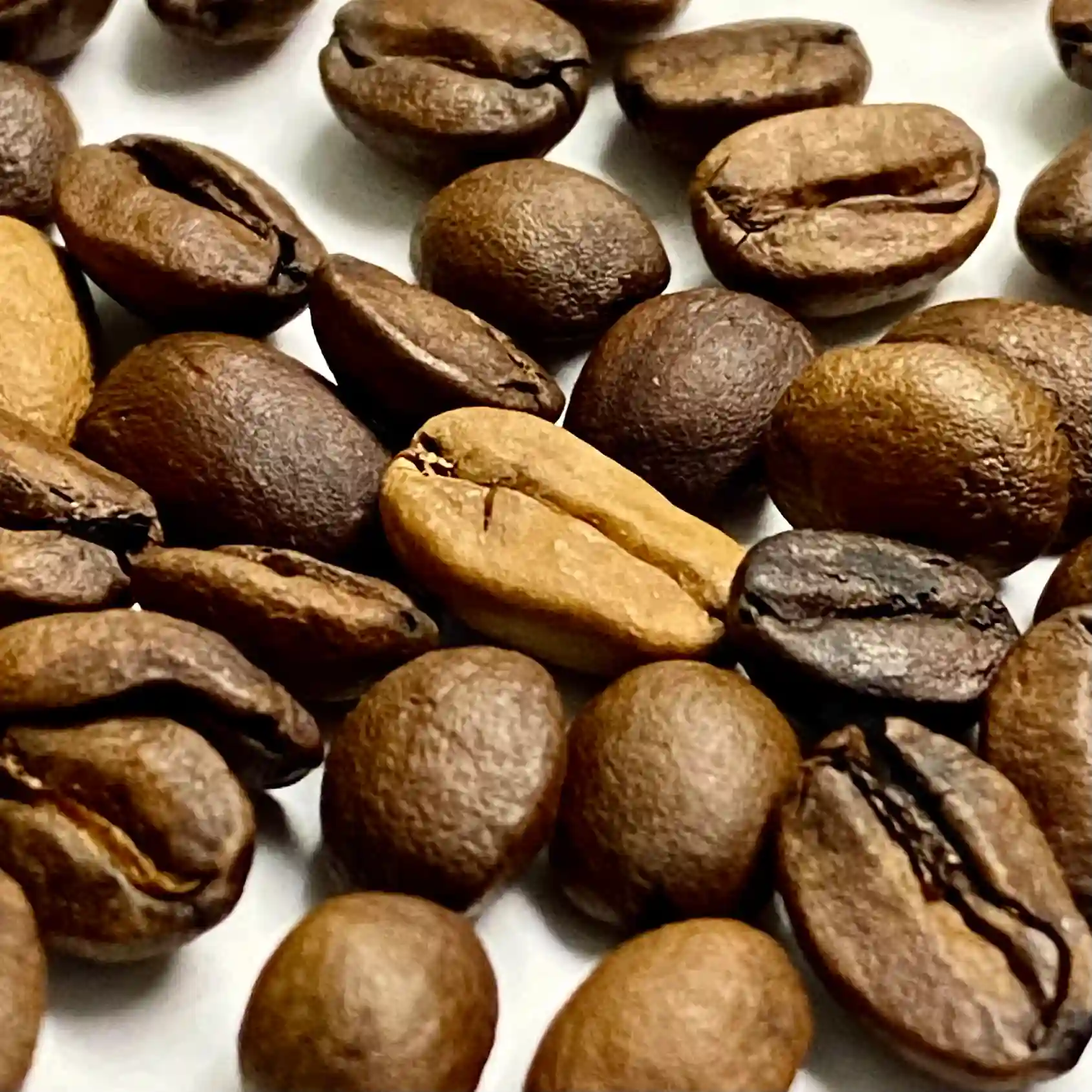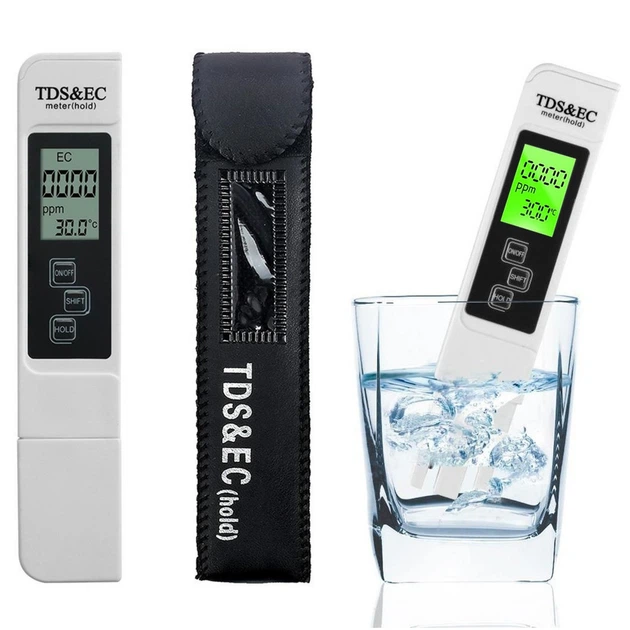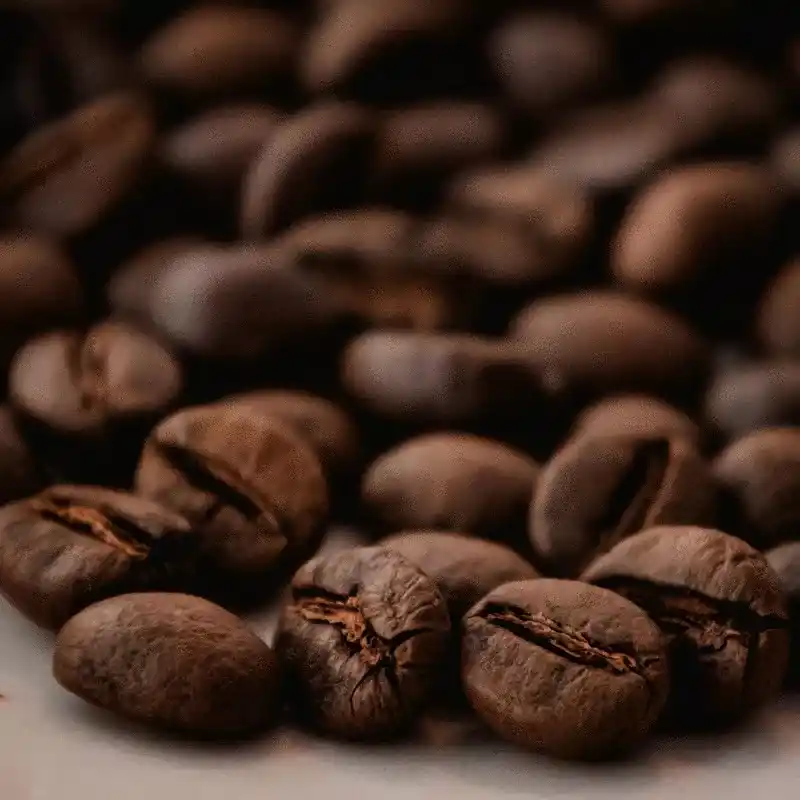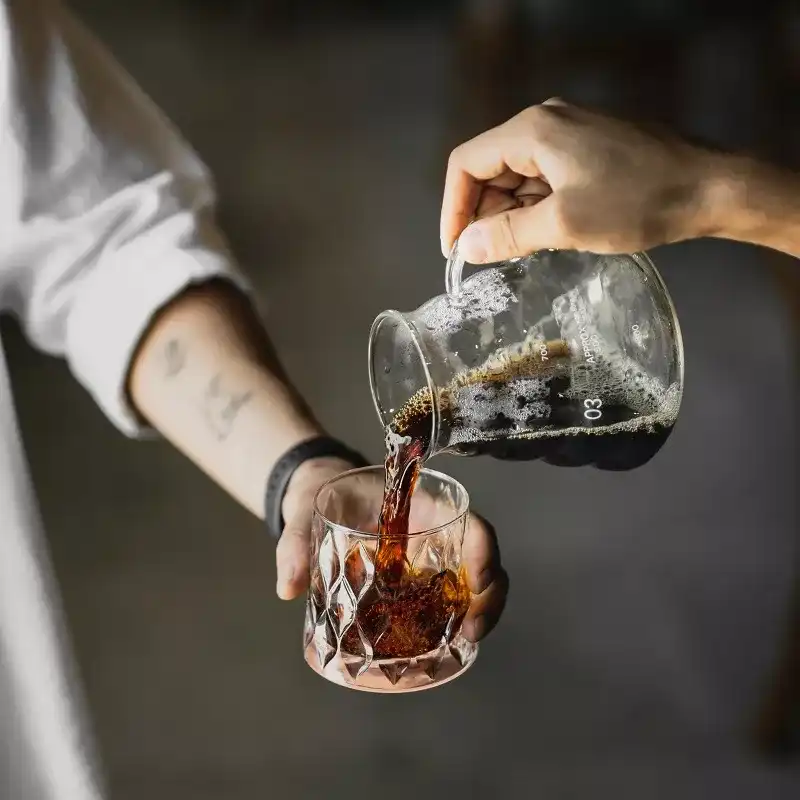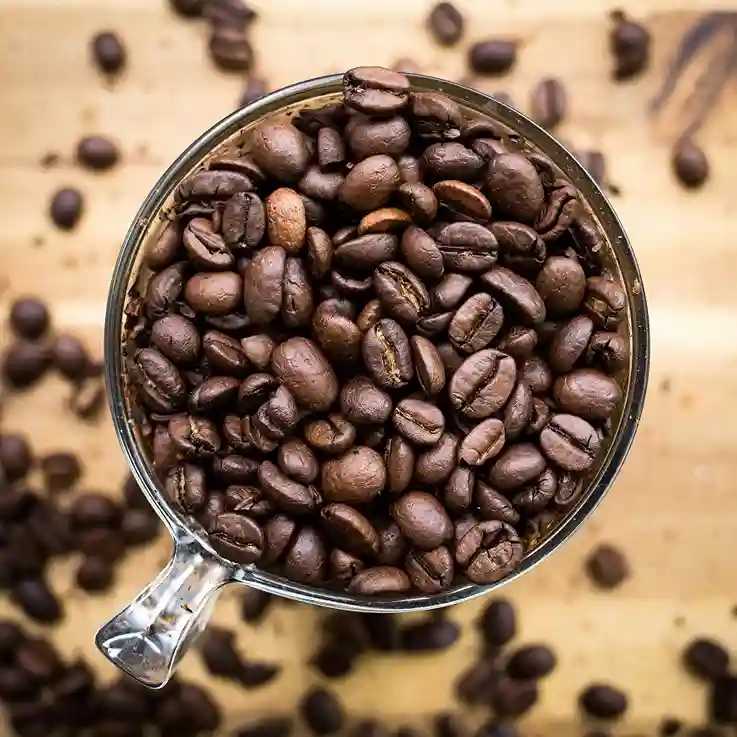Caffeine is a natural stimulant that increases concentration, reduces fatigue, and improves mood, but it can also cause anxiety, lead to sleep disturbances, and increase blood pressure. Many people are fond of tea as a mild and healthy alternative to coffee drinks, looking for a balance between vigor and a gentle effect on the body. But did you know that tea also contains this energizing compound? Its amount may vary depending on the variety, brewing method, and even brand.
So how much caffeine does black tea contain? Let’s find out.
Caffeine and its properties
Caffeine is a naturally occurring alkaloid found in the leaves, seeds, and fruits of certain plants, including tea, coffee beans, and cocoa. Its main effect is to stimulate the central nervous system. It blocks the receptors for adenosine, a substance responsible for the feeling of fatigue. As a result, a person feels a surge of energy, improved attention, concentration, and mood. The tonic effect depends on the dose, individual sensitivity, and frequency of consumption. In moderation, it can be beneficial, but excessive consumption causes agitation, insomnia, and heart palpitations.
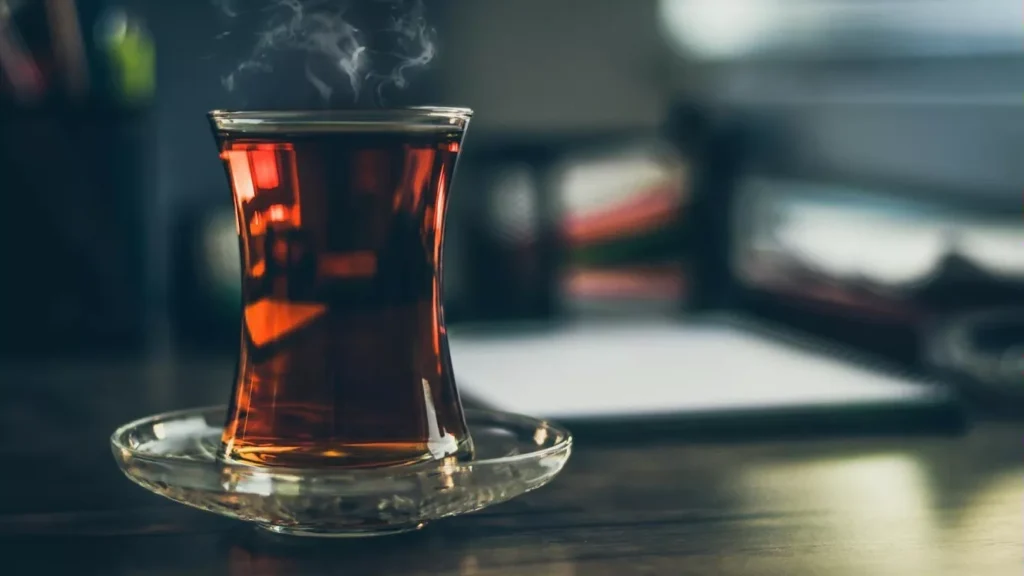
The amount of caffeine in a cup of tea
On average, a 200 ml cup of black tea contains about 60-80 mg, slightly less than coffee.
The content of the energy component depends on many factors: the type of tea, growing conditions, degree of fermentation, processing method, and brewing time. The longer the drink is infused, the more caffeine accumulates in the tea. It is also important to consider the ratio of leaves to water: more leaves means stronger tea.
Comparison of caffeine content in different types of tea
The caffeine content of tea varies considerably depending on the type and processing method. White tea has the lowest level of caffeine, ranging from 15 to 50 mg per cup of tea, making white tea ideal for those who avoid overstimulation.
Green tea contains a little more – about 30-50 mg. This tea is popular because of its antioxidants, which protect the body’s cells from free radicals, support the immune system, and slow down the aging process.
Oolong, a semi-fermented tea, has a caffeine content of 40-60 mg, the golden mean between green and black tea.
Black tea contains 60-80 mg.
Pu-erh, fermented tea, contains 70-90 mg.
Matcha contains about 75 mg of caffeine, and the use of powdered tea leaves allows you to get more caffeine than regular infusions.
Mate is a record holder among teas. It is a traditional South American drink that contains about 85 mg of caffeine and provides long-lasting vigor.
Comparison of caffeine content in black tea and coffee
Tea contains about 60-80 mg of caffeine per 200 ml, while a cup of coffee usually contains 90 to 140 mg of this stimulant per serving. Although coffee gives a faster and more powerful energy boost, tea consumption provides a milder and longer-lasting effect. This is due to the fact that tea combines the alkaloid with the amino acid L-theanine, which softens its effect, helps maintain concentration and reduce stress levels. Thus, black tea is suitable for those who prefer moderate vigor and a milder effect on the body, while coffee drinks should be chosen by those who need a quick and powerful boost of energy. The choice depends on individual preferences, body characteristics, time of day and occasion.
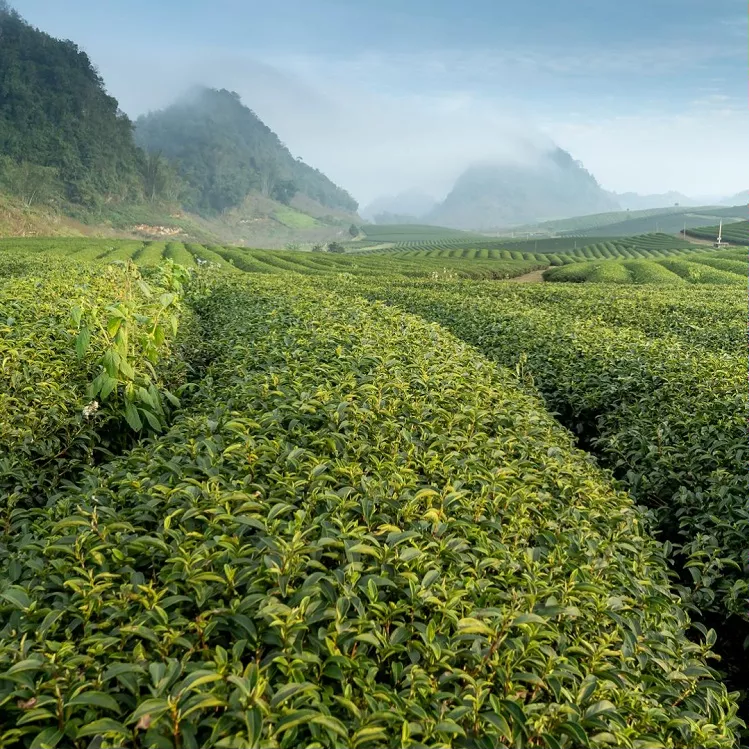
The unique effect of caffeine in tea
Caffeine in tea has a milder effect than in coffee drinks due to its unique combination with other natural substances, including the amino acid L-theanine, which softens the stimulating effect of caffeine, promotes relaxation without drowsiness and improves concentration. In addition, tea contains antioxidants and polyphenols, which slow down the absorption of the tonic component, providing a longer and more even effect on the body. Thanks to this, you feel refreshed with tea without the sudden spikes in blood pressure or nervousness that coffee bean-based drinks sometimes cause. This balanced effect makes tea a pleasant and safe drink for daily consumption.
Useful substances in the composition
Black tea is a real cocktail of nutrients that make it not just a delicious drink, but also a healthy one. In addition to caffeine, it is rich in powerful antioxidants – polyphenols, among which theaflavins and thearubigins stand out. They help protect cells from aging, reduce inflammation, and support the immune system. Theaflavins also help lower blood pressure and cholesterol levels. In addition, tea contains minerals, vitamins and amino acids that complement its healing effect. Thanks to this, when you enjoy tea, you get not only taste pleasure, but also benefits for your body every day!
Refuting common myths about caffeine in tea
There are many myths about the caffeine component in tea.
One of the most common misconceptions is that tea contains more caffeine per cup than coffee. In fact, a cup of coffee (200 ml) usually contains 1.5-2 times more caffeine than tea.
The second myth is the complete absence of caffeine in some types of tea. This is not true: almost all types of tea (black and green tea, white tea, oolong, pu-erh) contain it in varying amounts.
It is a misconception that coffee drinks stimulate and tea relaxes. In fact, both drinks have a stimulating effect, but the effect of teas is not as strong due to L-theanine, which balances the effect of caffeine.
Factors affecting caffeine content
The content of active substances in black tea depends on many factors.
First of all, it depends on the type of tea. Small-leaf and strong teas usually contain more caffeine.
The degree of fermentation plays an important role: the higher it is, the higher the caffeine content.
Water temperature and steeping time are also important: the hotter the water and the longer the brewing time, the more energy is transferred to the drink.
The quality of the raw materials is equally important: young, fresh leaves tend to contain more caffeine than mature or coarse ones.
All this should be taken into account when choosing tea, especially for those who are sensitive to tonics.
Recommendations for consumption
According to the World Health Organization, the daily caffeine intake for an adult should not exceed 400 mg per day. This is about 4-5 cups of black tea or 2-3 servings of a coffee drink. Pregnant women and people with high blood pressure or heart disease should limit their intake to 200 mg per day or consult a doctor for an individual daily intake. The best time to drink tea is in the morning or first half of the day to avoid affecting sleep. Also, do not drink too strong tea on an empty stomach. For a mild stimulating effect, choose freshly brewed tea of medium strength and do not exceed your individual comfort level.
Conclusions.
The caffeine in black tea is a natural energy boost that gives you clarity of thought and energy without sudden surges. Its unique composition makes it an ideal choice for those who appreciate a harmonious combination of activity and calmness. Choose high-quality natural tea, pay attention to the factors that affect the amount of the tonic ingredient in the drink, from the shape of the leaves to the brewing method, and enjoy your favorite infusion. Remember moderation and individual needs, and let each cup be a small step towards a healthy and harmonious life!

